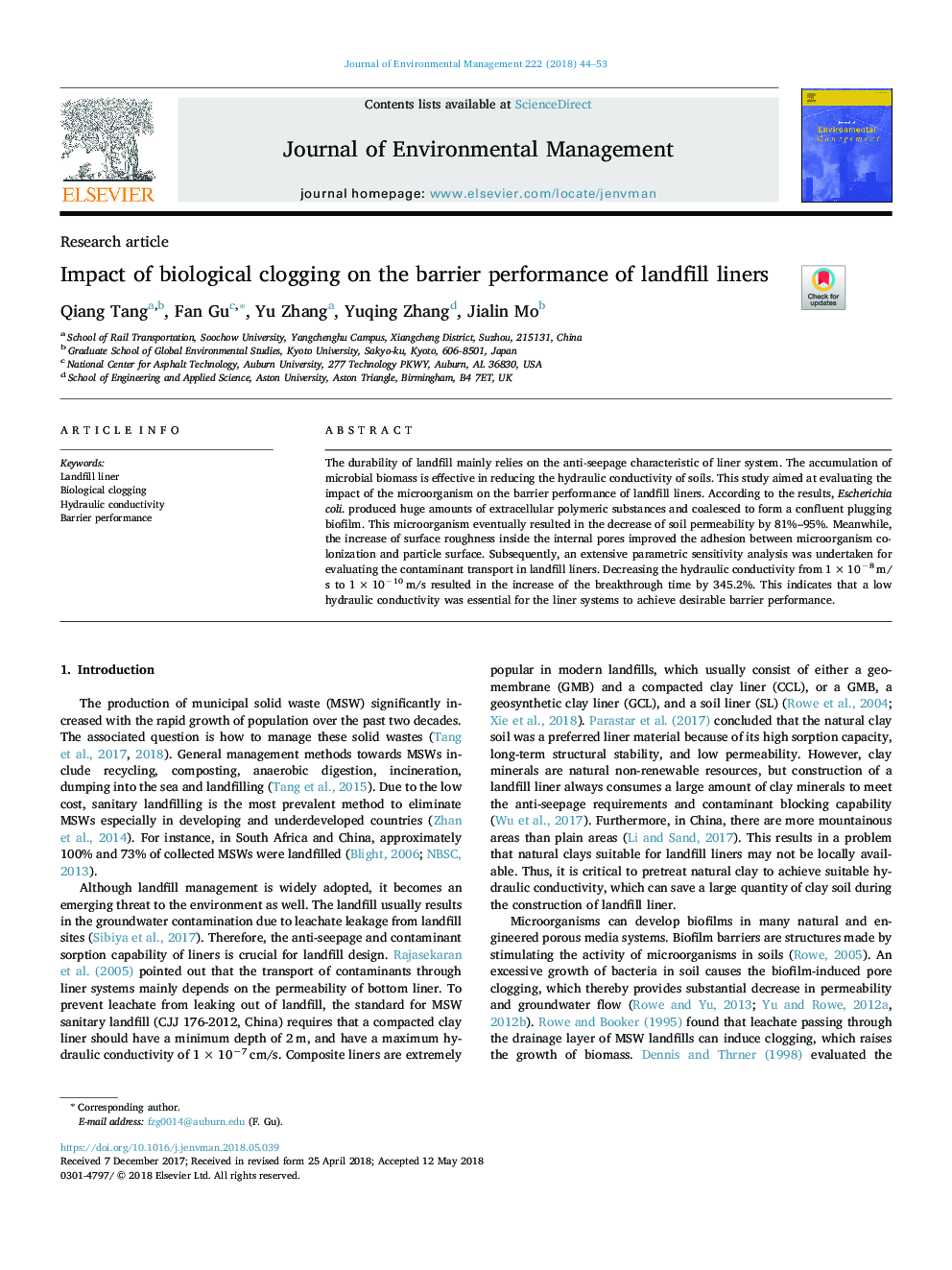| Article ID | Journal | Published Year | Pages | File Type |
|---|---|---|---|---|
| 7475907 | Journal of Environmental Management | 2018 | 10 Pages |
Abstract
The durability of landfill mainly relies on the anti-seepage characteristic of liner system. The accumulation of microbial biomass is effective in reducing the hydraulic conductivity of soils. This study aimed at evaluating the impact of the microorganism on the barrier performance of landfill liners. According to the results, Escherichia coli. produced huge amounts of extracellular polymeric substances and coalesced to form a confluent plugging biofilm. This microorganism eventually resulted in the decrease of soil permeability by 81%-95%. Meanwhile, the increase of surface roughness inside the internal pores improved the adhesion between microorganism colonization and particle surface. Subsequently, an extensive parametric sensitivity analysis was undertaken for evaluating the contaminant transport in landfill liners. Decreasing the hydraulic conductivity from 1â¯Ãâ¯10â8â¯m/s to 1â¯Ãâ¯10â10â¯m/s resulted in the increase of the breakthrough time by 345.2%. This indicates that a low hydraulic conductivity was essential for the liner systems to achieve desirable barrier performance.
Related Topics
Physical Sciences and Engineering
Energy
Renewable Energy, Sustainability and the Environment
Authors
Qiang Tang, Fan Gu, Yu Zhang, Yuqing Zhang, Jialin Mo,
